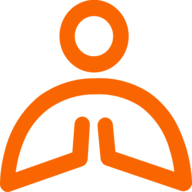Practicing yoga daily can bring a profound sense of balance and well-being to your life. It helps to cultivate a greater awareness of your body, mind, and breath, leading to increased flexibility, strength, and inner peace. Each day on the mat offers a unique opportunity to connect with yourself on a deeper level, release tension, and find a sense of calm amidst the busyness of life. Over time, you may notice an overall improvement in your physical health, mental clarity, and emotional stability, creating a harmonious and grounded foundation for your daily activities.
